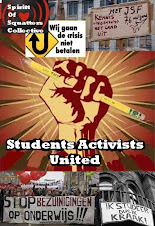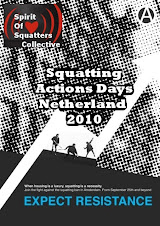We march to the streets, gather in spaces of protest and launch myriad forms of collective action, as we draw our strength from the wisdom forged by the herstorical struggle of our ancestors and our continuing efforts to sustain these struggles. We are telling our governments, the men in our societies, the people and institutions whose actions, policies, perspectives, ideologies and behaviour maintain the political, social and economic oppression of women that change we want, and change we are making happen.
Here in the Philippines, the state of the majority of Filipino women remains precarious. True, there has been renewed hope under a new government that promises to be the total opposite of the inept government that GMA's administration was and to undertake reforms in governance, but this breath of fresh air is so thin it is fast depleting, threatening once again the gains that the women's movement in the Philippines have achieved.
Even as the Aquino government is feeding us with platefuls of rhetoric, the reality speaks stronger and more truthfully. The promise of poverty alleviation has fallen short—and what we have now is a government that is promoting an economic policy with nothing new to offer and has been tried and tested as far as exacerbating conditions detrimental to workers and other basic sectors is concerned. The Public-Private-Partnerships or PPP have in the past resulted in increased outsourcing, casualization and contractualization of work. The PPP now is nothing but "build-operate-transfer on steroids," which will only deepen privatization of more public utilities and services, making these more expensive and prohibitive for the basic masses. Privatization in the past two decades has successfully handed over large sectors/industries of the economy to the hands of oligopolies. Privatization together with liberalization and deregulation ushered in years of jobless growth, precarious work and declining real wages. The PPP will further weaken labor and trade union rights, as it worsens poverty situations of the basic sectors, including urban and rural poor women and women workers. The Medium-Term Philippine Development Plan or MTPDP where it is contained lacks an industrialization program, despite consultations. We are anxious that the workers yet to be repatriated given the Middle East turmoil will not be absorbed into local employment.
Filipino women have no access to and control over economic resources in the same way that we continue to be deprived of control over our own bodies—our health and reproductive capacities. The traditional politicians in the legislature cannot stand up to the influential Catholic Church and has held hostage for a long time now a reproductive health bill that has been relegated in the back burner of Congress. President Noynoy Aquino (P-Noy) made a verbal commitment that he supports reproductive rights, as it is articulated in the Constitution, but as with his other pronouncements, he hasn't undertaken a more concrete action to support the bill. He didn't even include this bill in the list of the priority legislative agenda of his government.
If the state's efforts to protect women from harsh economic conditions has been found wanting, another kind of violence is posing as much danger to Filipino women—this is the increasing violence committed by government security forces, as seen in the recent cases involving a woman vendor that was raped by a police officer in a police station, of a child victim of sexual abuse and trafficking whose abuser the police chose to protect, of women activists and a female teacher that the police in Central Luzon threatened because of their political activities.
P-Noy has paid lip service to the promotion of human rights, but his rhetoric has not been translated into justice for victims of enforced disappearances and extrajudicial killings and their families. No soldier or paramilitary group has been made accountable for these disappearances and killings, and violations of human rights.
With its commitment to continue pursuing the Visiting Forces Agreement, the P-Noy government is turning a blind eye to the harmful impact of such arrangement. The VFA has not only compromised the sovereignty of our country but has resulted in more cases of abuse and prostitution of women and, through the unconventional warfare the VFA promotes, has exacerbated forced migration of families.
If the government is unable to give justice to victims of violence and abuse in the home front, outside the country Filipino women working abroad face a more imperilled situation. They have often been abandoned during situations of abuse and violence. Legal assistance from government has often been slow in coming if not altogether denied. Rescue of Filipino women from households and work places where they have been exposed to risks of physical, emotional and psychological abuses is more exception than norm. This despite the fact that the number of Filipino women pushed to work abroad has been increasing because of lack of decent jobs in the country—in 2009, 71000 Filipino women left the country to work as workers/helpers in households; they made up 21 percent of the newly hired in the top 10 job categories abroad. While many local households benefit from their remittances, working in the private homes of their employers have placed them in situations very vulnerable to abuse, ranging from maltreatment to sexual harassment, including rape. In addition, their absence has had negative impact on some two million children left behind without mothers.
Meanwhile, the government's efforts to get diplomatic agreements with countries where there are significant populations of Filipino women working have often been weak; in several cases even a failure. Such weak response from government shows lack of recognition, maybe even ignorance, of the presence of abuses in other societies.
In this light we recognize that the women's struggle is one of solidarity, because violence and disregard for women's human rights are happening within other societies of the world and are allowed, even supported, by certain states. In particular, the Philippine women's movement is affirming its commitment to support women in Burma who continue to suffer all forms of abuses perpetrated by a brutal, rogue state, which is using rape as a weapon of war and promoting discrimination based on ethnicity.
On this occasion of the international day of women, we Filipino women continue our struggles; we shout out our protest; we are angered by the oppressors and abusers of women all over the world.
But we dream too; we remain inspired by our visions of a better world for women and other marginalized, discriminated members of society.
Our cries of resistance are reinforced by our joyful shouts affirming our aspirations—Kabuhayan, katarungan, kapangyarihan sa kababaihan, kontrol sa sariling katawan, kaligtasan sa karahasan, kapayapaan!
Akbayan-Youth • Amnesty International • APL-Women • Asian Circle 1325 • Bagong Kamalayan • BATIS • Batis-AWARE • Buklod – Olongapo • CATW-AP • Center for Migrants' Advocacy • Center for Overseas Workers • Development Action for Women Network (DAWN) • Focus on the Global South • Free Burma Coalition • Freedom from Debt Coalition • Initiatives for International Dialogue • KAISA-KA • LRC-KSK/FOE-Phils. • Movement for the Advancement of Student Power (MASP) • Medical Action Group (MAG) • Partido ng Manggagawa (PM) • PKKK • Philippine Alliance of Human Rights Advocates (PAHRA) • PREDA • SARILAYA • SCAP • Transform Asia • TWMAE • UP Sigma Alpha Nu – Manila & Los Banos • WEDPRO • WomanHealth • Women's Legal Bureau • Welga ng Kababaihan • Women's Crisis Center • Youth and Students for the Advancement of Gender Equality (YSAGE) • World March of Women – Pilipinas


No comments:
Post a Comment